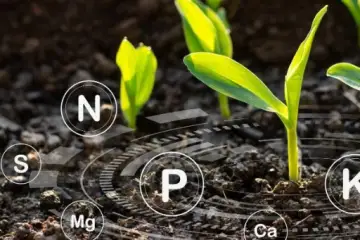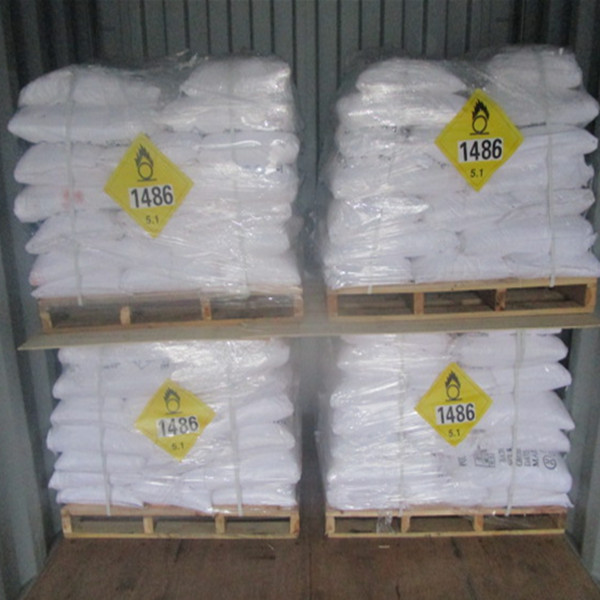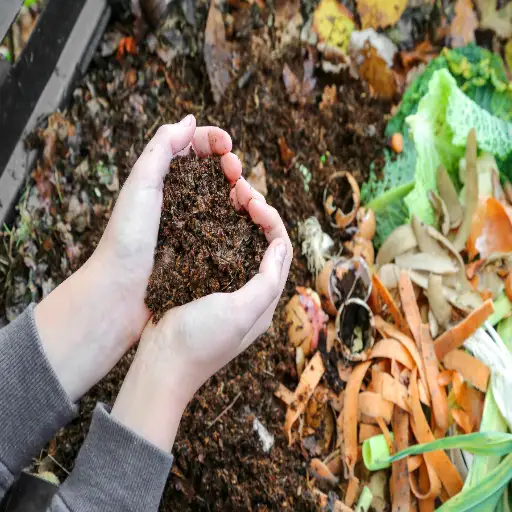Introduction
Due to the industrialization of modern agriculture today, we focus more on sustainable and environmental friendly cultivation schemes. The core of this issue is choosing the best vegetable fertilizer, which means that organic fertilizer plays an important role in sustainable farming. It enhances the quality of soil, and the nutrition of crops. Selection of the organic fertilizer is an important decision when farmers managing agricultural producton due to it influences crop yield, soil quality and environmental sustainability.
To fully grasp why organic fertilisers play a vital role in vegetable farming, it’s worth taking a moment to understand what makes them special compared with synthetic alternatives. To begin with, the nutrients of organic fertiliser are sourced from natural materials, such as compost, manure and organic amendments – this inherent richness feeds not just the crops but the soil – and the environments that make up this ecological heaven where microorganisms thrive. It’s a cumulative approach, one that means farmers who use organic fertiliser are looking at holistic farming, taking care of the soil, biodiversity, and a long-term future.
Furthermore, choosing the best type of organic fertiliser for vegetables is not just about agronomic criteria, it expresses a commitment towards environmental sustainability. The use of organic fertilisers, derived from renewable sources and free of chemicals, would increase the sustainability of agriculture. Through efficient nutrient recycling and the reduction of synthetic inputs, it is possible to avoid environmental impacts caused by intensive farming practices. In this way, a greener agricultural system would be, in which biodiversity and ecosystem services would be more forms of resilience.
Our desire to explore the potential of organic fertilisers in vegetable crops roots us in the full impact of agricultural production in our environment. Use of organic fertilisers is not a mere straight-arrow choice, about inputs and production. It is a philosophical one: we stay rooted in this planet and the life that inhabits it. We trust the farmer to adopt sustainable practices, based on principles of soil health, carbon sequestration, biodiversity and conservation. And we fruitfully converge with ideas of innovation and challenge. Let vegetables grow in the fields.
Understanding Soil Health
Good vegetable crop production is built on proper soil health understandings of soil as the living skin of the Earth. Soil is a living and complex ecosystem that supports an intricate array of life forms and nutrients essential for plants. Soil health plays a crucial role in vegetable crops as it directly affects the availability of nutrients for the plants, the interaction of water and air in soils leading to moisture holding capacity of soils along with maintaining plant structure beneficial for crop plant’s root.
Soil health depends on many different factors: physical factors such as texture and structure; chemical factors such as pH and nutrient levels. Soil testing provides farmers with information about different soil functions that can help them identify the different nutrients in their soils and address any deficiencies. Soil health concepts enable the farmer to grow over 40 different kinds of vegetables over three seasons on land that is ‘unproductive’ By working with the soil, not on it, farmers can maintain soil structure, improve its fertility and promote bacterial activity that helps plants to absorb nutrients.
Organic farms strive to advance this goal of soil health by aiming practices well beyond conventional to specifically regenerative, meaning the restoration and revitalisation of ecological health. Organic farmers practise a holistic approach to soil, using cover crops, crop rotations and fertilisers to build soils that are more fertile and resilient. Cover crops, in particular, serve as ‘nature’s green manure’, replenishing the soil with organic matter, weed suppression and promoting beneficial microbial activity. Organic fertilisers also come from natural, non-synthetic sources and provide a balanced mix of nutrients, which add to the soil without sacrificing the integrity of the soils, contributing to the long‑term health of agricultural ecosystems.
Greater attention to and support for soil health in vegetable crop production will present challenges and opportunities as we dig deeper. Climate change, soil erosion and land degradation threaten agricultural sustainability as never before, providing strong incentives to adapt to more regenerative practices. Yet these challenges also present opportunities for innovation, sharing knowledge and stewardship that leads to more fertile soils, more food for people, and healthier ecosystems.
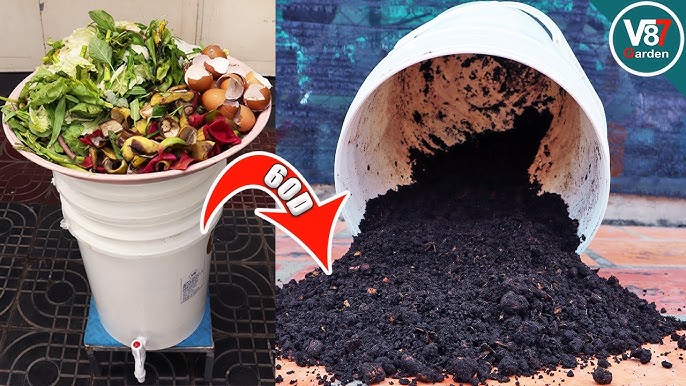
Types of Organic Fertilizers
Organic fertilisers are a diverse group of natural materials that serve as sources of nutrients for vegetable crops. Of all the various types of organic fertilisers, compost stands out as a pillar of sustainable vegetable production. Compost is organic matter’s most valuable end product. Compost is the result of decayed organic materials such as kitchen food scraps, yard wastes and crop residues. It is a result of recycling and optimises resource inputs and outputs. Compost’s nutrient-rich, active microbial and humus-rich goodness replenishes depleted soils, increases water-holding capacity and increases nutrient availability for vegetable crops.
Manure is another classic organic fertiliser that dates back millennia. For crops that don’t get enough natural fertilisation, manure – whether cow, chicken or other livestock – is a particularly potent source of organic matter and nutrients. Manure needs to be composted or aged before application to reduce the risk of pathogens and weed seeds, and applied in appropriate quantities to prevent excessive salts from building up in the soil. Nonetheless, when applied properly, it provides a dose of nitrogen, phosphorus, potassium and other micronutrients that will stimulate a good harvest of vegetables.
Alongside compost and manure are the cover or ‘green manure’ crops that can be planted between rows of cash crops or during a time of fallow. We can promote ecological stability and sustainable soil fertility with the help of the plant cover crops that are planted in diverse combinations of legumes, grasses and brassicas and are used to rebuild soil organic matter, fix nitrogen from the atmosphere, suppress weeds, recycle nutrients, and create opportunities for beneficial insects, birds and microorganisms. These cover crops can play a bigger role in crop rotations to diversify the nutrients provided to the soil, suppress weeds, improve water infiltration rates and soil structure, and diminish the need for and replacement of in organic fertilisers.
These examples of helpful microorganisms, the illuminating chemical environments they create for plants and the type of farming practices that protect them all point to what Frederic-Arcand refers to as the ‘limits of monocultures’. Monocultures, though potentially productive, rely on harmonising soil, climate, weeds, pests and organisms around the confused metabolism of their particular plants.
Best Practices for Organic Fertilizer Application
Applying organic fertilisers to vegetable crops is most effective when guided by best management practices that provide nutrients when the vegetable crops demand it most. For example, early-season applications can offer a boost to nitrogen (N) when plants need it most. Side dressing of vegetable crops to supplement excess nutrient losses earlier in the season can be very useful. Similarly, top dressing applications apply nutrients when vegetables enter the fast-growth phase of development right before harvest.
Depending on soil type, crop species and farming practices, organic fertiliser incorporation methods may differ, with broadcasting, banding or injection allowing for the homogenous delivery of nutrients in the root zone, with subsequent equal and uniform growth and nutrient use of crops. Advances in precision application technologies, such as drip irrigation and fertigation, can help target organic fertiliser placement right into the root zone, minimising nutrient loss through leaching or runoff, and maximising nutrient use efficiency.
Second, nutrient balancing and concerns for environmental pollution play a role. Soil testing and nutrient management planning help farmers to choose the right fertiliser types, rates and application methods to minimise the risk of over-application and its repercussions, such as nutrient leaching and runoff into surface waters. Using integrated nutrient management combines organic fertiliser with cover cropping, crop rotations and conservation practices to maximise the use of nutrients, build soil health and protect environmental quality for the next generation.
Environmental Sustainability
Choosing among the available options for organic fertiliser will promote regenerative agricultural systems that minimise the ecological footprint and contribute to the preservation of natural resources. Organic fertilisers, including compost, manure, and cover crops, are renewable products that contribute less to greenhouse gas emissions compared with their synthetic counterparts. Organic solutions provide benefits for climate, food safety, soil, and water quality. To mitigate climate change, benefit biodiversity, protect fragile ecosystems, reduce water pollution, glaciers, Siberian taigas and endangered species benefit from organic fertilisers.
Another variety of strategies involve soil health, biodiversity and ecosystem implications that are critical for sustainable organic production systems. One commonly used strategy is cover cropping, which on top of sequestering more carbon dioxide from the atmosphere facilitates nutrient cycling by promoting beneficial insects, birds and soil microorganisms, as well as creating diversity in terms of crop varieties and rotations. The rotations and diversified systems used in organic systems often contribute to suppression of pest and disease pressures that otherwise need to be managed by synthetic pesticides and fertilisers in conventional agriculture. While we are at it, the choice of cover cropping systems for farmers might vary with climate change in different geographical regions.
Additionally, efficient management of organic fertilisers can help reduce environmental problems such as water pollution and soil degeneration, which have become urgent challenges for intensive agriculture. Precision application of organic manure and nutrient management planning help reduce nutrient run-off and leaching, reducing nutrient contamination of rivers, lakes and groundwater reservoirs. Soil conservation techniques (for example, reduced tillage, control of water and wind erosion and agroforestry) ensure that soil structure, fertility and associated productivity will be preserved under our changing climate and land degradation.
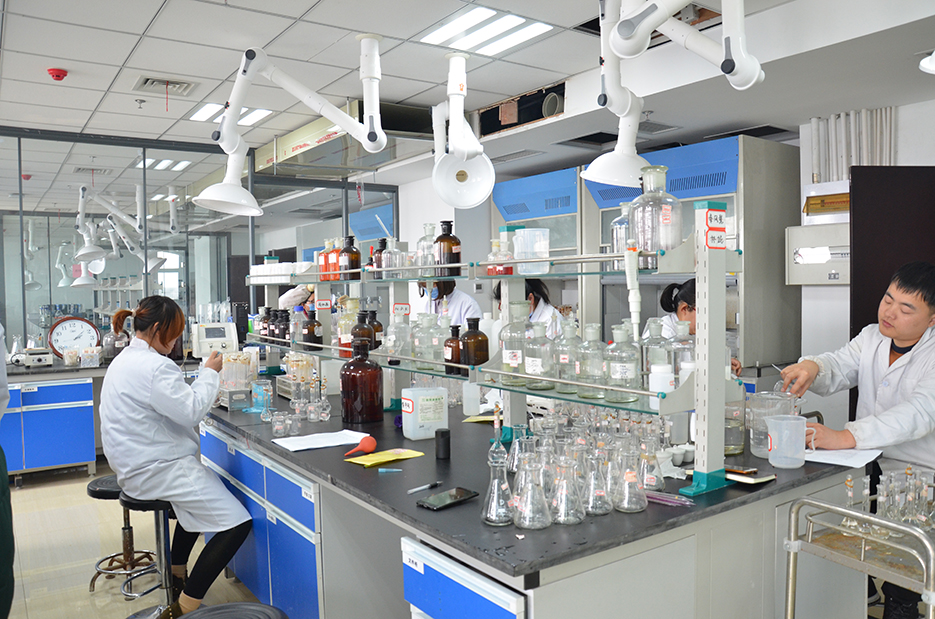
Case Studies and Success Stories
As living laboratories of sustainable agriculture, organic vegetable farms are also ideal locations to demonstrate the benefits of innovative practice and holistic approaches to fertility management. Success stories from all over the world illustrate how the use of organic fertilisers helped to increase yields, promote the health of soils and improve the livelihoods of farmers. Case studies provide concrete illustration of how different organic fertiliser options can be used to enhance the sustainability of agricultural production.
For example, the long-running Farming Systems Trial at the Rodale Institute in Pennsylvania in the US has demonstrated the efficacy of compost, cover crops and crop rotations to promote resilience in farming systems. Here and elsewhere around the world, decades of careful and methodical trials have shown that organic fertilisers can match conventional inputs for yield, returns and quality, while simultaneously promoting soil health and biodiversity.
By contrast, global south grassroots movements and farmer cooperatives are now leading the use of organic fertilisers to protect and promote food security, improve livelihoods and restore landscapes that have been degraded. In latin america, the Sustainable Agriculture Network is offering smallholder farmers training, technical assistance and market access to enable them to convert to organically produced crops, and realise the benefits of regenerative agriculture. In africa, the African Organic Agriculture Network is doing the same.
Conclusion
Finally, then, there is no singular thing that is ‘the best organic fertiliser for vegetables’. Rather, the ultimate solution will be multi-pronged and multifaceted, balancing considerations of soil health, environmental sustainability and farmer profit. In sum, a few final key points we can take from this deep-dive on vegetable fertility that I hope you have found productive and informative. First, it’s all about the soil.
Without the foundational support of a healthy soil, there will be no success in consistently producing quality yields of your favourite vegetables, and creating and maintaining a rich and diverse ecosystem. So, please remember to test your soil (at least annually), plan your fertility (at the beginning of planting season and at noon), and build soil (every day from dawn ’til dusk).
Second, how organic fertilisers are chosen and used can advance agricultural sustainability and environmental stewardship by improving soil health and minimising environmental impacts on water, greenhouse gases and other areas. With diverse sources of organic matter (such as compost, manure, cover crops and organic amendments), farmers can enhance the supply of nutrients and water-holding capacity of soils. Biodiversity – which is also essential for healthy agriculture and healthy lifestyles – can be increased through soil-food web management and other methods. Importantly, using fertilisers in a ‘precision’ approach and developing nutrient management plans can minimise environmental effects on water quality and climate change.
Last but far from least is the added value of organic fertilisers not only for agronomic but also for social and economic transformation: from smallholder to medium-scale to large-scale, organic agriculture can contribute to rural development, food and nutrition security, and the resilience of our planet against a changing climate. Investing in an economic model with a lower carbon footprint, which also enables smallholder farming to alleviate rural poverty, extends the economic benefits across multiple societal actors, including businesses and consumers, to nourish people and planet and allow humanity to thrive and hand over a future to the next generations.
So, as we start to steer the whole process of agricultural development in a more ‘natural’ direction and build our path to a more sustainable, resilient and regenerative agriculture, we should hold organic farming firmly in our minds as a healthy but crucially localised expression of nature, as a timely reminder that if we work collectively to build healthy soils, healthy ecosystems, healthy farms and healthy communities, nutritious vegetables will grow on their own under elevated skies and in broad daylight.
Here are some references on the best organic fertilizer for vegetables:
- Saha, Dipanwita, et al. “Effect of different organic fertilizers on growth, yield and quality of vegetable crops: a review.” Agricultural Reviews 40.3 (2019): 193-204.
- Wani, A. H., et al. “Effect of integrated nutrient management on growth, yield and quality of radish (Raphanus sativus L.).” Progressive Horticulture 47.1 (2015): 60-63.
- Gutiérrez-Miceli, F. A., et al. “Comparison of Organic and Inorganic Fertilizers on Growth, Yield and Fruit Quality of Tomato (Solanum lycopersicum).” Journal of Agricultural Science 6.7 (2014): 15-25.


